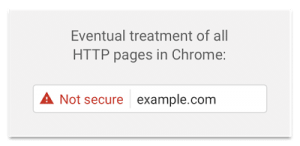An online presence is an essential part of any business in the modern world. There’s no escaping that fact. As time goes by, your business’s online presence becomes more vital for growth and survival. Customers don’t call and ask questions anymore. They go online and search Google, read reviews, check out Facebook groups and expect fast answers to their emails. If you’re starting a business these days it is crucial that you start building and managing your online presence the right way, right from the beginning.
One key fact to remember is that your company’s online reputation is going to develop with or without your participation. Your attendance is not required. Customers and potential customers will talk about you whether you like it or not. Your online presence goes far beyond your own website and email inbox.
Managing your presence on the Internet can seem overwhelming for someone who’s not familiar with online marketing, especially as you’re simultaneously trying to get a new business up and running. It’s not quite as complicated as it might seem though. If you can keep a handle on a few basic things as you get off the ground, you’ll be off to a good start. Then, as you grow, you can hire someone to take care of and manage things as they become larger and more complicated.
Here are a few tips that should help you to plan and control your company’s online presence through the early stages. We’ll assume you’ve already bought a domain, put together some sort of web site and are ready to begin reaching out from there.
Schedule Time
It might seem obvious to some, but it’s worth saying it directly. You need to set aside some regular time to plan your marketing strategies and check on results you’ve had so far. You don’t need to go crazy, but if you know you’ve got a few hours a week already set aside it will take the stress out of it.
Create Social Media Pages
Use these accounts to communicate on a more friendly and personal level. You don’t want to lose your professionalism, but you don’t want to be too stiff and stuffy either. These sites can be a great way to make yourself and your brand more relatable to potential customers. The main idea is to keep things conversational and be interactive. It’s not a wall of ad space, it’s a dialogue.
Even if you don’t plan on using social media right away, it’s a good idea to create pages on Facebook and Twitter and maybe some others if they might be relevant to your business in the near future. It will make it simpler to begin creating a presence there later, and it will help prevent someone else from setting up something meant to steal from or sabotage your reputation.
Check And Update Local Listings
Depending on the type of business you are running, you might find your company name popping up in local listings directories. Yelp and Tripadvisor are large examples of these types of sites. Search regularly for your company name and claim any entries you find on these sites. There are two things you want to do here. First, you want to make sure all of your company information is accurate. Then, you want to see what people are saying about you and respond to it if needed.
Monitor For Chatter
Use Google Alerts to receive notifications when the search engine finds a mention of your name, or any term you deem relevant, out on the web. You can have it watch for the name of your company, a product you sell, or even a particularly troublesome customer who’s been making a lot of noise.
You will know when good reviews pop up somewhere, and you’ll be able to get on top of and respond to bad reviews before they get out of hand.
Respond To Reviews
When you do come across reviews, good or bad, respond to them. Always be professional, of course, and let your consumers know that you are there and paying attention to what they have to say, even when they aren’t saying it directly to you.
Say thank you for a good comment, offer to fix the problem when you find a bad one. Customers absolutely respond better to a company that will listen to what they have to say and take the time to respond, even if you’re just saying “thanks”.
Start A Regular Routine
Once you’ve got the basic idea of how to do everything above, get it into a routine and make sure you do it regularly. It shouldn’t really take a lot of time for a new business, but the results of following these suggestions can make a tremendous difference.
Each time you go through these steps you’ll be getting closer to customers and building bridges in communication. Right from the beginning, you’ll have your finger on the pulse of what your consumers are saying about you. The information you gain and the reputation you build among them will become invaluable as you grow.
When this simple routine stops being simple and starts to take more time, take it as a sign that you’re doing well and perhaps it’s time to look into hiring a professional to take over the work for you.
Business & Finance Articles on Business 2 Community(12)








